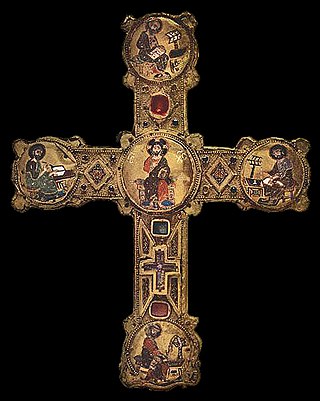The name Romero is a nickname type of surname for a Roman or an Italian. The name was originally derived from the Latin word Romaeus and the Greek word Romaios, which mean Roman.
- A person on a religious journey or pilgrimage from Rome
Pérez or Perez, as most commonly written in English, is a Castilian Spanish surname. Peretz or Perets is also common among people of Sephardi Jewish descent, and is the 4th most common surname in Israel, most common surname not of Hebrew language origin, and most common surname exclusive to a single Jewish ethnoreligious subgroup.
Luis is a given name. It is the Spanish form of the originally Germanic name Hludowig or Chlodovech. Other Iberian Romance languages have comparable forms: Luís in Portuguese and Galician, Lluís in Aragonese and Catalan, while Luiz is archaic in Portugal, but common in Brazil.
Molina is a Spanish occupational surname. Molina is Latin for 'mill' and is derived from another Latin word, mola ('millstone'). The surname originated from the early Middle Ages, referring to a person who operates a mill or a millstone. Other Spanish surnames, like Molinero, have also originated in the work and management of a mill. Spanish municipalities like Molina de Segura (Murcia) or Molina de Aragón still nowadays include millstones or mill blades in their respective coats of arms.
Márquez or Marquez is a surname of Spanish origin, meaning "son of Marcos or Marcus". Its Portuguese equivalent is Marques.

Cruz is a surname of Iberian origin, first found in Castile, Spain, but later spread throughout the territories of the former Spanish and Portuguese Empires. In Spanish and Portuguese, the word means "cross", either the Christian cross or the figure of transecting lines or ways. For example, in the Philippines, the adopted Tagalog word is rendered to "krus" in plain usage, but the Spanish spelling survives as a surname.
Angelica is a female given name and a variant of Angelika.
Benítez is a surname of Spanish origin. It is thought to have originated in Asturias, in the north of Spain.
Mariano is a masculine name from the Romance languages, corresponding to the feminine Mariana.

Sánchez is a Spanish family name.

Angela is a female given name. It is derived from the Greek word ángelos (ἄγγελος), meaning angel from Greek mythology. In the United States, the name "Angela" was at its most popular between 1965 and 1979, when it was ranked among the top 10 names for girls. Between 1922 and 2021, in the United States, the name was ranked in the top 35 names for girls.
Angel or Ángel Pérez may refer to:
Angelika is a variant of Angelica, derived from Latin angelicus meaning "angelic", ultimately related to Greek ἄγγελος (ángelos) – "messenger". The poets Boiardo and Ariosto used this name in their 'Orlando' poems, where it belongs to Orlando's love interest. It has been used as a given name since the 18th century. Angelika is used in Polish, German, Slovak, Czech. and Hungarian. Notable people with the name include:
Angelina is a diminutive form of the name Angela, a name derived from the Greek angelos meaning messenger and archangel.
Fuentes is a Spanish language surname meaning "fountains." Notable people with the surname include:

López or Lopez is a surname of Spanish origin. It was originally a patronymic, meaning "Son of Lope", Lope itself being a Spanish given name deriving from Latin lupus, meaning "wolf". Its Portuguese and Galician equivalent is Lopes, its Italian equivalent is Lupo, its French equivalent is Loup, its Romanian equivalent is Lupu or Lupescu and its Catalan and Valencian equivalent is Llopis.
María Pérez may refer to:
Rivera is a surname of Spanish and Italian origin which was the old spelling of ribera, the Spanish word for "riverbank".




